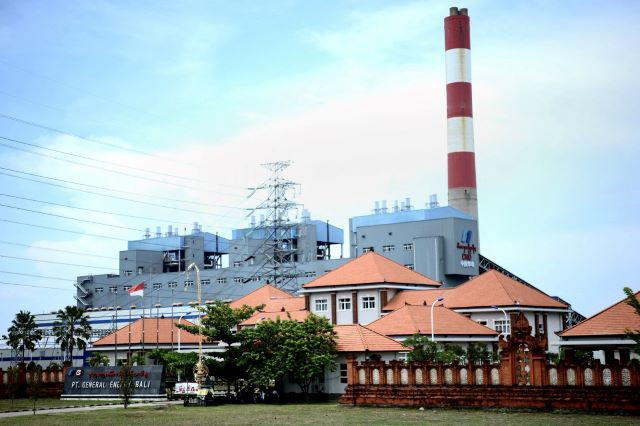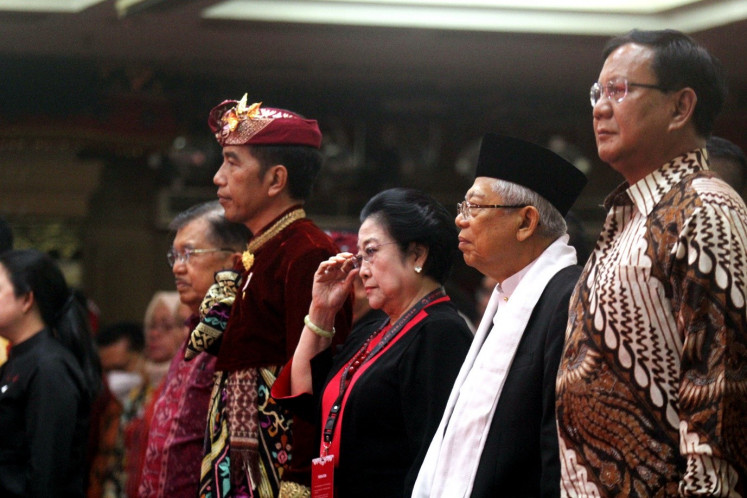Letter to the Editor: Clarification on AIDS prevention campaign
This comment is in response to your Dec
Change Size

T
his comment is in response to your Dec. 5 article titled "President expected to front AIDS prevention campaign". It contains numerous errors of fact and attribution. Since much of the report was based on an interview with me, I want to set the record straight.
First, I never suggested that President Yudhoyono should take the lead in an AIDS prevention campaign through public service announcements (PSAs) on television to promote condoms and safe sex. Furthermore, I never remarked, as your journalist wrote, that the President should appear in a PSA that shows the public how to wear condoms and explains the benefits of wearing them. This is an unfortunate, and ridiculous, misrepresentation of what I discussed with your reporter.
When asked what more could be done to curb the spread of HIV and AIDS cases in the country, I said that I did not think it was enough to only focus on populations at high risk of infection such as intravenous drug users, commercial sex workers and their clients, and men having sex with men. The HIV problem in Indonesia is larger than this. On top of efforts aimed at such groups, I mentioned that I believe broader behavioral change campaigns that utilize the mass media, especially PSAs on television, could be useful in Indonesia.
In support of this view, I shared with your reporter that DKT received a grant of nearly US$1 million several years ago to implement an HIV/AIDS prevention campaign in the media that led to a steep increase in the size of the commercial condom market in the country.
The PSAs focused on several topics, including the need to increase self-perceived risk in Indonesia, reach out to sexually active young people and debunk myths about HIV and AIDS. Among other activities, five PSAs were aired nationwide that featured Chris John (boxing champion), Lula Kamal (celebrity activist), Nidji (popular local band), Nafsiah Mboi (Secretary of National AIDS Commission), and First Lady Ani Yudhoyono.
After talking about Ibu Ani Yu-dhoyono's appearance in one of the PSAs, I remarked to your reporter that it would be wonderful if the President could be persuaded at some point in the future to appear in a PSA about HIV/AIDS risks and prevention which mentioned the "C" word, or condoms. Nothing more specific than this was suggested.
Your reporter made it seem like I was directing the government to spend $5 million on media campaigns to ensure, in her language, that everyone, including in remote areas, wore condoms to stop the spread of HIV.
This statement is incorrect on two scores. When asked about a media budget, I simply said that $5-10 million per year would go a long way toward increasing awareness and changing some of the behaviors that contribute to HIV infections.
Additionally, it must be recognized that behavioral change initiatives that use the media, no matter how well conceived, will never convince everyone to wear condoms and behave responsibly.
After my interview with The Jakarta Post, I wish to point out that one of DKT's managers, Pierre Frederick, emailed a summary to your reporter which explained our experience with PSAs and their impact on increasing condom use. It appears this report went unread or was misunderstood.
Two other points in the article need clarification. First, the purpose of National Condom Week, as reported, is not just to commemorate World AIDS Day which falls on Dec. 1. DKT collaborates with the National AIDS Commission, Coordinating Ministry of Social Welfare, Ministry of Health and others to organize National Condom Week to prompt greater awareness of the importance of condoms to prevent more HIV/AIDS cases in Indonesia.
Instead of organizing activities only on Dec. 1, the point of condom week is to host a series of initiatives that draw attention to the importance of condoms and sexual health awareness and responsibility. For instance, an MTV Staying Alive concert that combines music and fun with safe sex messages marks the final day of condom week.
On the size of the Indonesian condom market, the statistics that your article attributed to me are wrong. Neither 12.4 million nor 13.5 million pieces represent anywhere near the size of the market in the country. DKT estimates the commercial condom market, which excludes condoms given away by the government, is about 110 million per year.
The key point that I was trying to get across to your reporter is that condom usage is low in a country the size of Indonesia and not growing as we would like.
To reinforce this point, after the interview DKT emailed information from an ACNielsen Retail Audit that shows condom purchases declined from 2008 to late 2009 at modern trade outlets tracked by the market research firm. While I made it clear the ACNielsen audit does not capture sales at all outlets but is an important indicator of trend, your reporter did not appear to understand this.
It is regrettable there were so many errors in your report about National Condom Week, which is unique to Indonesia. While I thank the Post for covering condom week, I can only hope the quality of reporting will improve in the future.









